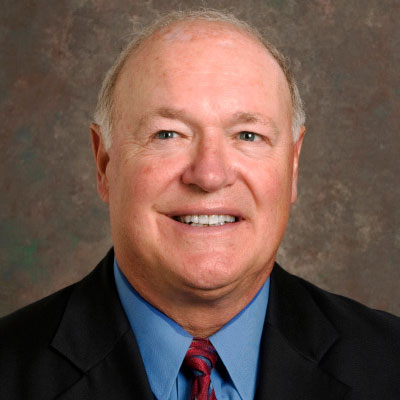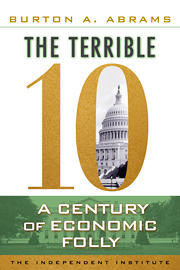Alcohol is important to Federal Reserve folklore.The economist Milton Friedman likened the central bank to a drunk driver careening down the highway: The drunk driver goes too fast, applies the brakes too late, oversteers and eventually lands the car in the ditch.
In another boozy analogy, the late Fed Chairman William McChesney Martin, whose tenure spanned the 1950s and ‘60s, said it was his job to take away the punch bowl just as the party got going. He failed to heed his own advice, however, and got the party rip-roaring in an attempt to help Hubert Humphrey win the 1968 presidential election. Humphrey lost, but inflation continued to worsen for over a decade as presidents and their Fed chairmen failed to apply the brakes needed to halt the inflation.
President Richard Nixon, on his infamous Oval Office tapes, was caught red-handed pressuring his Fed chairman, Arthur F. Burns, to “goose” the money supply to help his 1972 re-election campaign. In 1979, a sober Fed chair, Paul Volcker, took the wheel, hit the brakes, and flipped the economy into the recessionary ditch of the early 1980s.
The drunken behavior of the Fed is due in large part to its “dual mandate” to maintain price stability and full employment—potentially conflicting goals that can produce schizophrenic behavior. No sitting president or his party wants high unemployment going into the next election. So, presidents and their parties have incentives to window dress the economy before voters go to the polls. Richard Nixon summed it up: “I’ve never seen anyone beaten on inflation in the United States. I’ve seen many people beaten on unemployment.” Nixon himself felt he was beaten on unemployment in his 1960 presidential bid.
Today the Fed demonstrates it is more than a bit tipsy. The Fed’s Quantitative Easing program, undertaken in the name of “stimulus” to return the economy to full employment, has produced over two and a half trillion dollars in excess reserves in the banking system, an amount substantially more than all the checkable deposits in the economy. This promises to cause the Fed its biggest hangover in decades.
To prevent an explosive growth in money and the inflation rate, the Fed may have to pay banks not to use the funds or backtrack on its Quantitative Easing. Either way, the central bank will act as a drag on the economy for many years to come. There is, after all, no such thing as “free” Quantitative Easing.
As further evidence of tipsy behavior, the Fed has taken it upon itself to proclaim a 2-percent inflation rate as a sensible goal. Apparently it doesn’t care that it’s legislatively mandated to achieve price stability. But the Fed ignores that mandate at our peril. If prices rise “only” 2 percent each year, prices would double every 36 years. People born today would see prices quadruple by their 72nd birthday. This can hardly be considered “price stability”—not to someone conversant in Standard English. Another cup of punch anyone?
Bartender Fed chair Janet Yellen seems absolutely distraught that the inflation rate, currently under 1 percent, is below the Fed’s target. The current inflation number, however, is temporarily low due to dropping oil prices. When oil prices stabilize or begin to rise, inflation can be expected to accelerate. Still, Chairman Yellen is adamant about getting more inflation now and keeping the punch bowl out. But as any sober driver knows, you take your foot off the gas pedal long before you turn off the highway.
The economy is gathering steam, output growth is strong, and the unemployment rate is falling, but the Fed has decided to keep its foot on the accelerator and keep its benchmark interest rate, the federal funds rate, near zero until mid-year. The longer it waits to take away the punch bowl, the greater the odds that its policy of “free drinks” is creating dangerous bubbles in financial and real-estate markets and intensifying inflationary pressures. When we hit and then exceed the 2 percent inflation rate, will Chairman Yellen stomp on the brakes and throw the transmission into reverse? Or will she offer a few more drinks for the road and allow inflation to accelerate? If Janet Yellen, a loyal Democrat, finds Hillary Clinton on the 2016 ballot, we can anticipate that the punch bowl will be left out. Much of the Fed’s history of drunken driving arose from the central bank catering to political pressures to reduce unemployment in the short run by sacrificing price stability in the long run. Eliminating the full-employment goal and demanding that the Fed focus on achieving price stability would greatly reduce the pernicious influence of politics and help bring sobriety to monetary policy.







